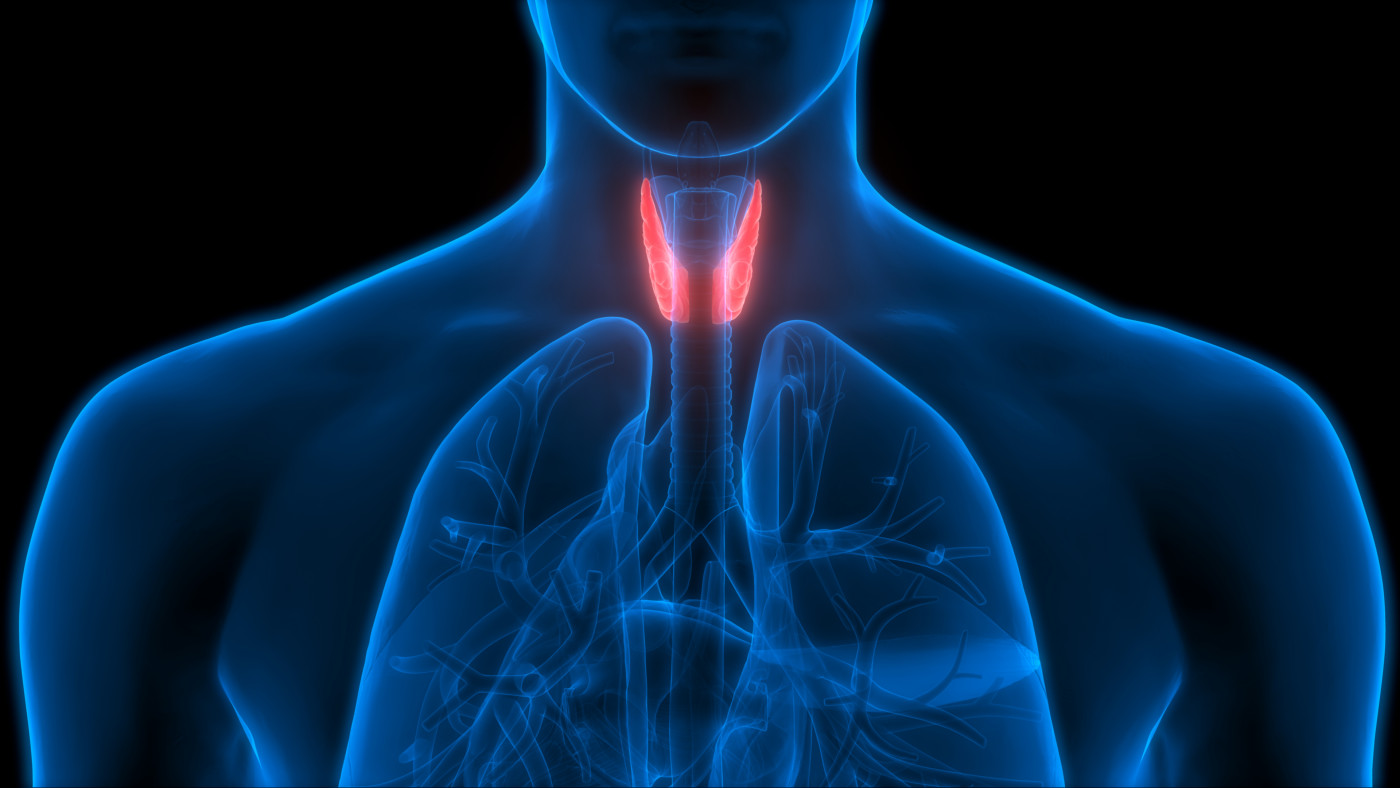Chronic Hypoparathyroidism Due to Thyroid Surgery May Be Fairly Common

People who undergo surgery to remove the entire thyroid gland have a much higher incidence of chronic hypoparathyrodism than previously reported, with younger patients and those with so-called toxic thyroid disease at particular risk, a study in Denmark found.
The study, “High incidence of chronic hypoparathyroidism secondary to total thyroidectomy,” was published in the Danish Medical Journal.
Hypoparathyroidism is characterized by low levels of the parathyroid hormone (PTH), resulting in low levels of calcium (hypocalcemia) in the blood.
The condition is often caused by damage to the parathyroid glands — responsible for PTH production — during surgery to remove the thyroid glands. Chronic hypoparathyroidism is thought to affect up to 3% of people undergoing thyroid surgeries, but some studies suggest that these estimates are much lower than the disorder’s real incidence.
Researchers in Denmark conducted a study of all patients who underwent thyroid surgery at the Zealand University Hospital to determine the real incidence of chronic and transient hypoparathyroidism, and which factors put patients at risk for this complication.
Their analysis included 187 patients, with a mean age of 53.6. Most were women (87.7%), and were undergoing surgery due to pressure or difficulty swallowing. But 60 patients had more troublesome diagnoses: namely, Graves’ disease, an autoimmune disorder, or thyroid nodules with excessive production of thyroid hormones. Both are deemed toxic thyroid diagnoses.
After surgery, 43.3% of patients developed transient hypoparathyroidism, with nearly one-quarter recovering within one week, and about half within the first month. However, remission was not seen in 13.4% within six months, and they were defined as having chronic hypoparathyroidism.
People with surgery for Graves’ disease had a high incidence of hypoparathyroidism, both transient (70.5%) and chronic (27.3%), the researchers said.
Multiple factors — such as age, sex, reason for surgery, bleeding during surgery, and the number of parathyroid glands identified or transplanted during surgery — were then examined to identify what increases the risk of hypoparathyroidism.
Results showed that younger age and a toxic thyroid diagnosis were the only two factors that raised a risk of both transient and chronic hypoparathyroidism.
The findings demonstrate “higher incidences of post-operative transient and chronic [hypoparathyroidism] than previous studies,” and show that risk factors for “include younger age and a toxic surgical indication, typically Graves’ disease,” the scientists wrote.
They suggest that future studies focus on improving the surgical methods, and on determining the influence of biochemical factors on the outcomes of Graves’ disease patients undergoing thyroid surgery.






